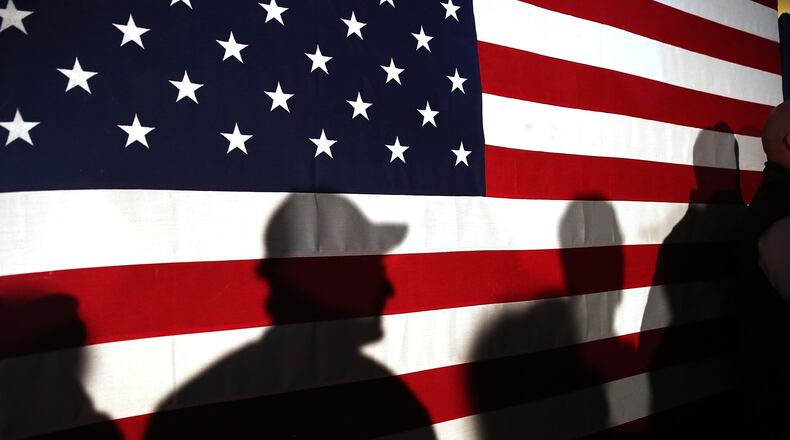- Scientist reports tens of thousands of sharks off Florida coast
- Plus-size model graces cover of Sports Illustrated Swimsuit for the first time
- Legislator: Men must get wife's permission for Viagra prescriptions
- 9-year-old at the wheel because couple was too drunk, police say
- Woman's body found in Walmart parking lot, had been there for three months
The race to the White House heads south as Republican and Democratic presidential candidates campaign in South Carolina ahead of the “First in the South” primaries. Here’s what you need to know.
1.) When does the South Carolina primary take place?
The Republican and Democratic primaries take place on different days. The Republican primary takes place Saturday, Feb. 20 and the Democratic primary takes place Saturday, Feb. 27. Polls will be open from 7 a.m. to 7 p.m. each day.
>>Related: Donald Trump tops GOP field going into South Carolina primary
2.) What’s at stake in the South Carolina primary?
Republicans have 50 delegates and Democrats have 59 delegates. According to The Hill, former Secretary of State Hillary Clinton has claimed the support of three of South Carolina's six superdelegates ahead of the primary vote.
3.) Who is leading the polls ahead of the South Carolina primaries?
The latest polls have tycoon Donald Trump maintaining a large lead in the Republican race, while Clinton has a sizable lead over Sen. Bernie Sanders.
4.) What are other things to look for in the South Carolina primary?
There is expected to be a tight race for second place in the Republican primary. There may be more casualties on the Republican side once the South Carolina primary is over. In particular, the primary performance of Ben Carson and John Kasich will be monitored closely. On the Democratic side, the margin of victory may determine how much momentum the winning candidate has heading into Super Tuesday.
5.) What’s South Carolina’s primary track record?
The South Carolina GOP primary is known in political circles as a "firewall" that can cement the position of the front-runner. According to the S.C. Republican Party website, only one candidate has won the Republican nomination for president without winning the South Carolina primary, and that was Mitt Romney in 2012.
For the Democrats, the South Carolina primary has historically been a bit more unpredictable. In 1988, South Carolina held a caucus in lieu of a primary and selected Jesse Jackson. John Edwards defeated eventual Democratic candidate John Kerry in the 2004 primary.
About the Author
The Latest
Featured
